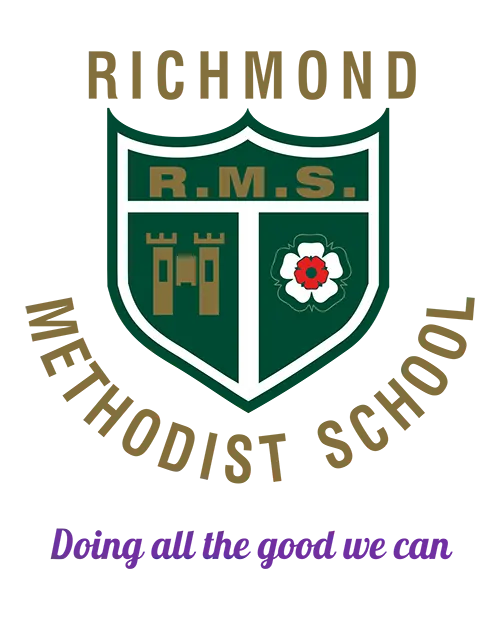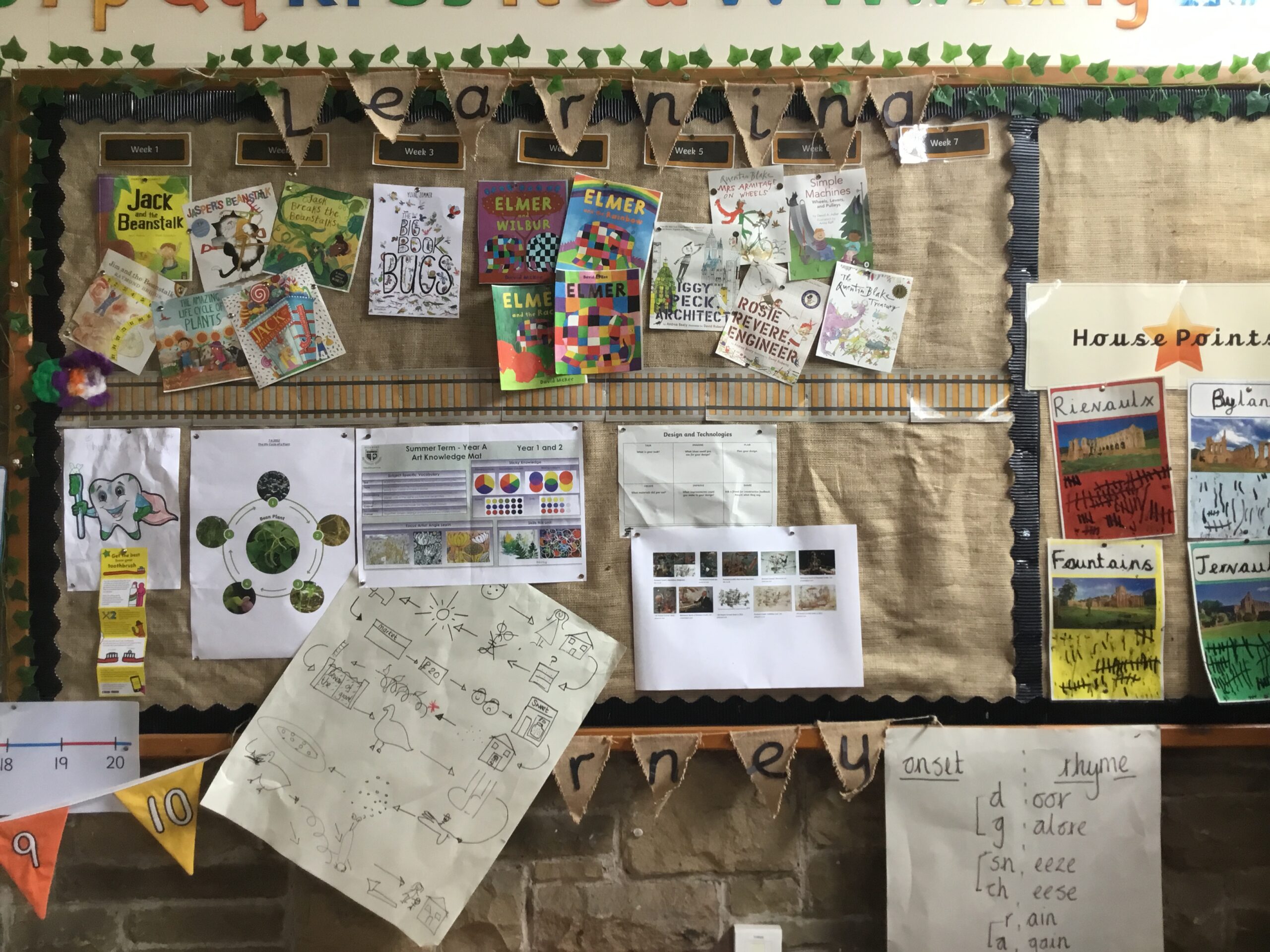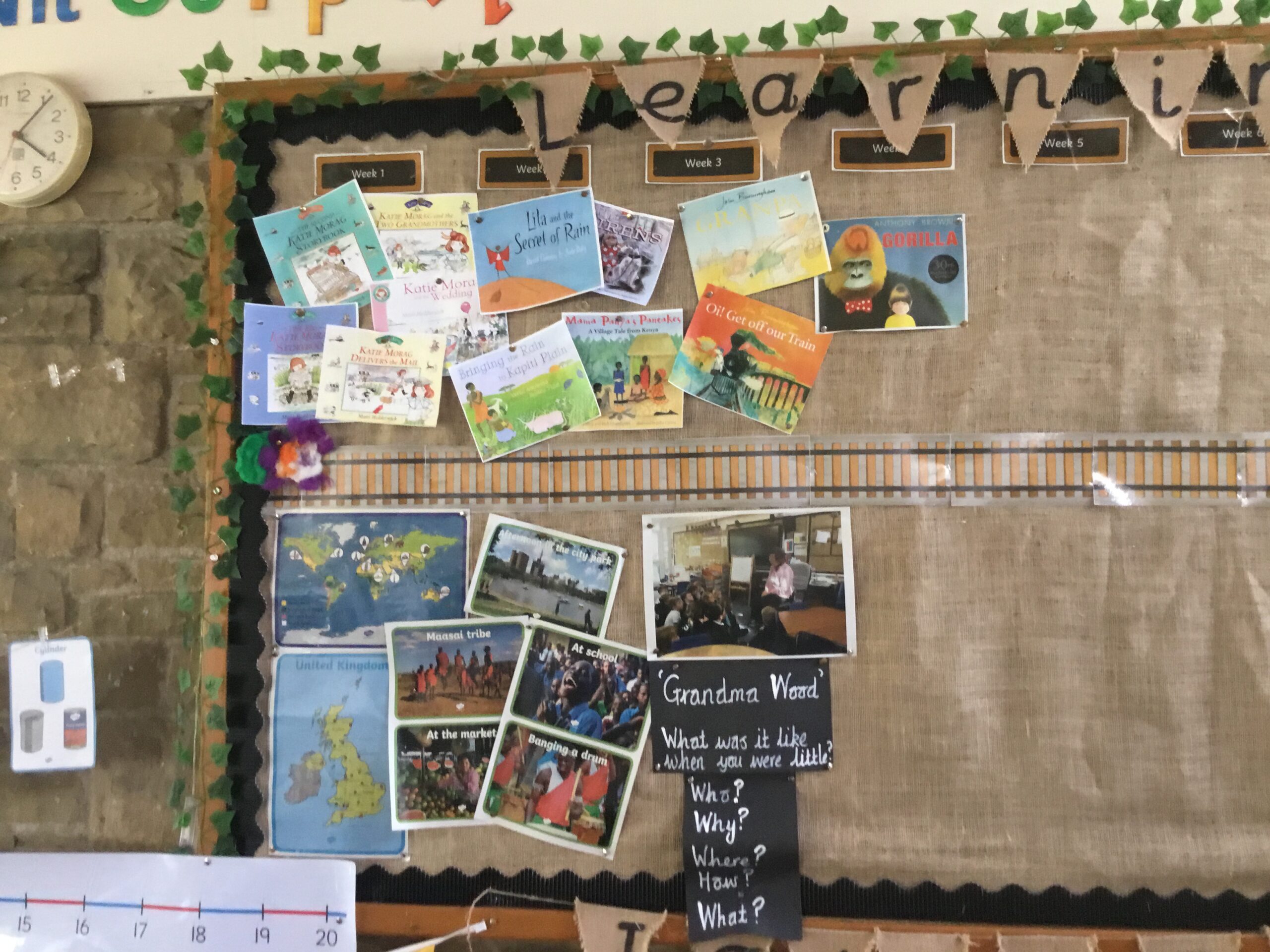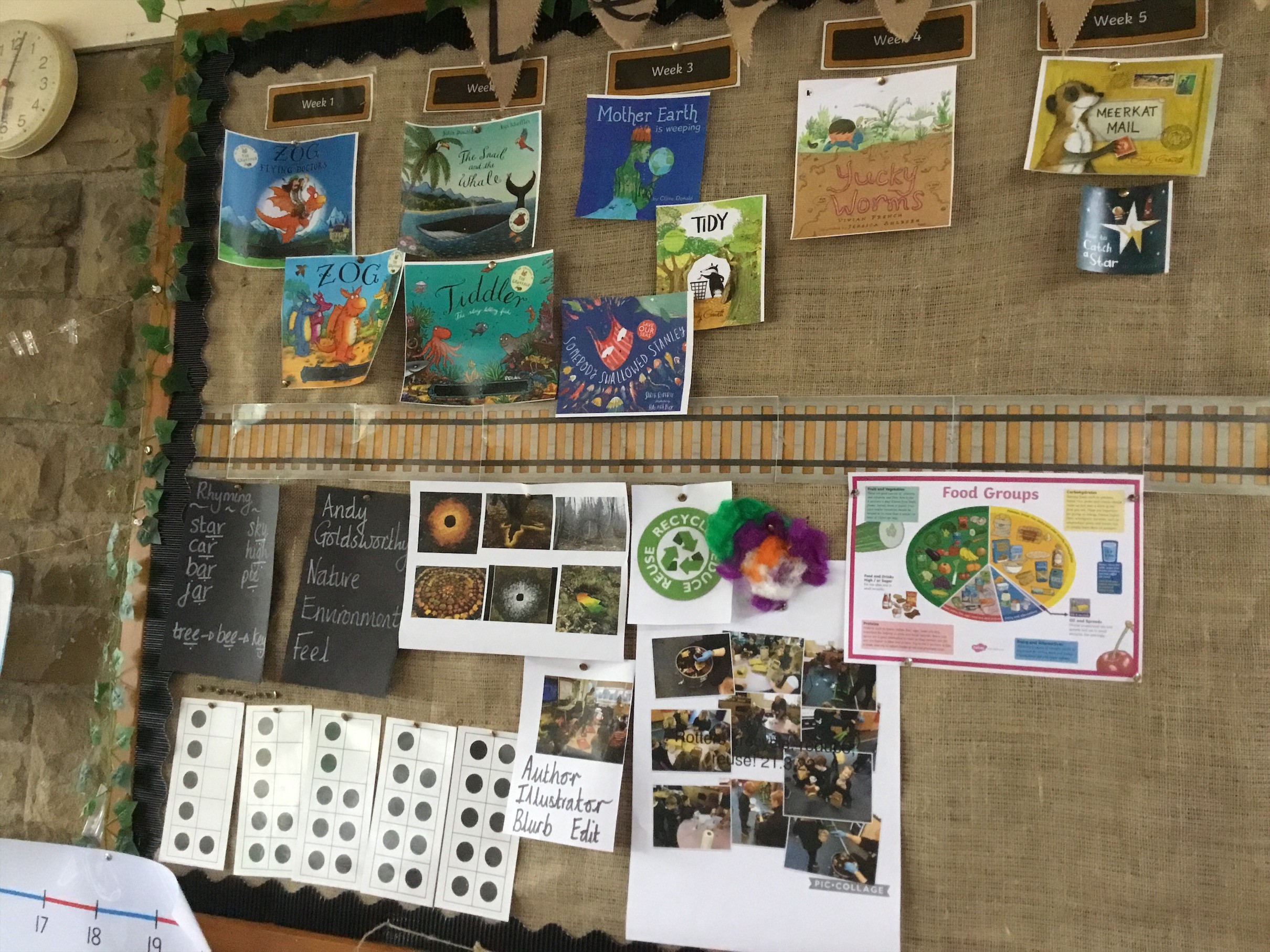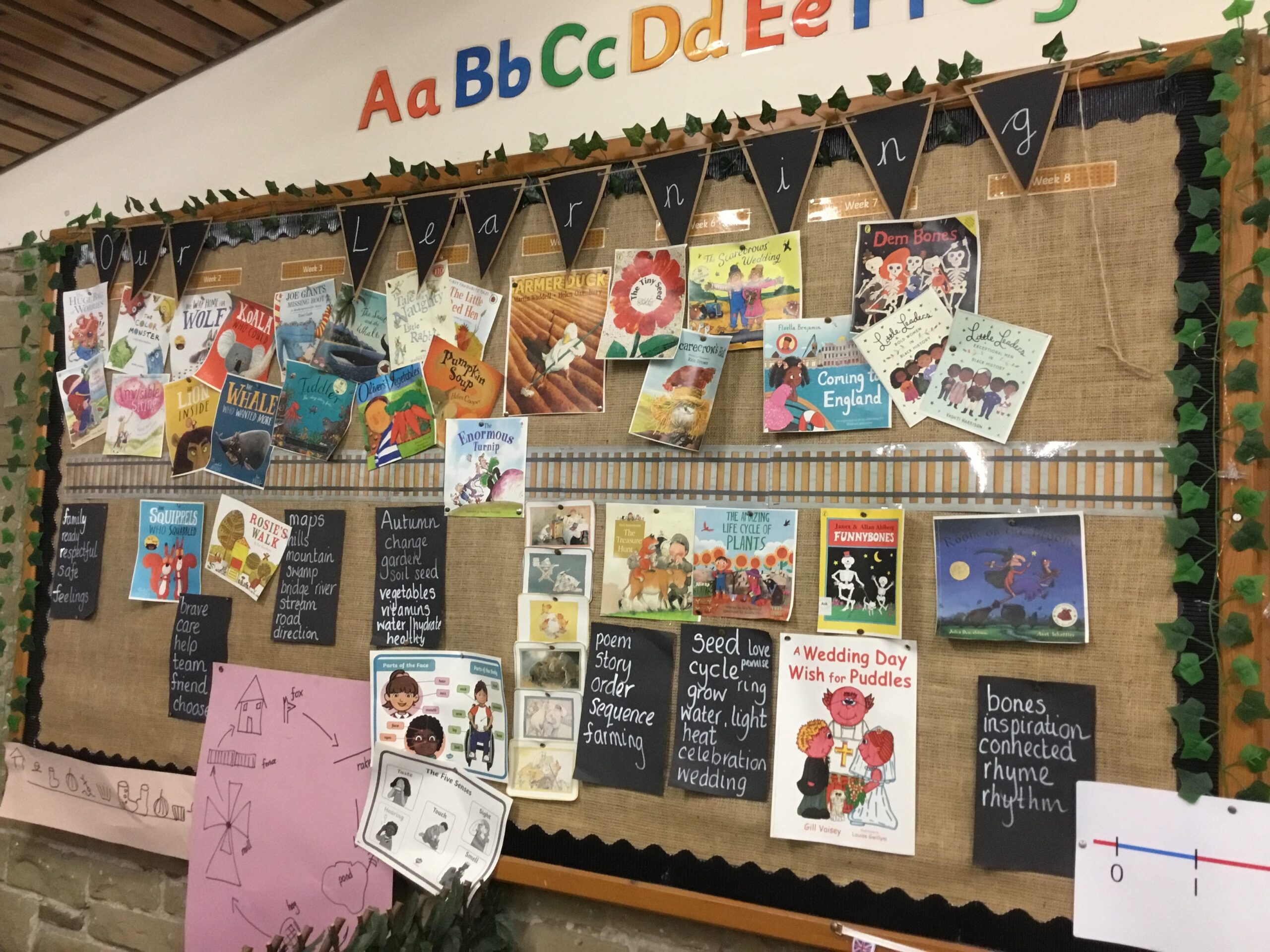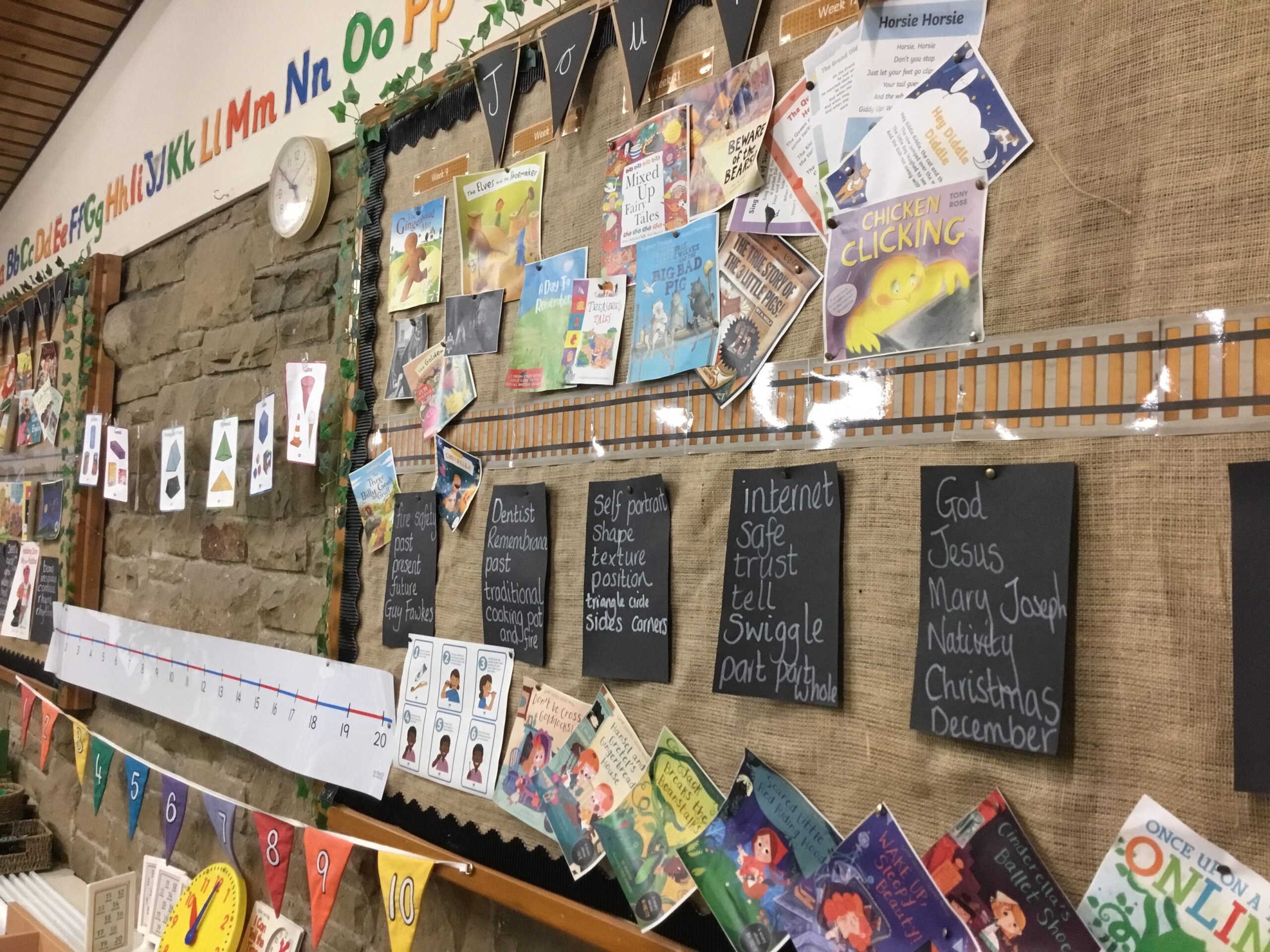EYFS – Silverdale, Ribblesdale, Swaledale and Malhamdale
EYFS@RMS Curriculum
Here at EYFS@RMS, we meet the requirements of the educational programmes in the statutory framework for the Early Years Foundation Stage (EYFS) and we use the non-statutory guidance available to plan our engaging curriculum in a series of incremental, sequential steps.
We also use these documents to check regularly our children are on track for achieving their age-related learning, plan children’s individual next steps and to assess our outcomes. These documents are available to view at the bottom of the page.
However, our curriculum is much richer and much more personal to our children who attend our school at any given time.
Each child in our EYFS family from our youngest to those preparing for Year 1, is planned and provided for distinctly so ‘all’ children can reach their potential and feel successful.
In a daily and weekly context, our curriculum is driven using the children’s own lines of enquiry, context, culture, engagement level and needs.
It also excites and enables independent learning, language and communication. Adults in our provision guide, notice and intervene, moving the children’s spoken language on so they develop that fluency essential to express themselves effectively. We are interested in our children personally and help scaffold their developing understanding of themselves as little people.
In every interaction, our ‘Ready, Mutually Respectful and Safe’ behavioural blueprint is evident. Relationships are strong and underpin our knowledge of each child so we know how to facilitate next steps.
Our Seven key features of effective practice are:
(Taken from Development Matters)
- The Best for Every Child – all children deserve an equal chance of success and we enable access to learning for all.
- High Quality Care – all of our RMS children feel loved, noticed, valued and a sense of belonging.
- The Curriculum – Our curriculum starts with talk. Interactions with skilled adults and each other develop speech, vocabulary and control of language. This underpins all learning.
- Pedagogy: how we help children to learn – we employ a mix of different approaches. Children learn through play, by adults modelling and/or narrating, by observing each other, and through guided learning and direct teaching.
- Assessment – this is continual and informal. As we work with each child, we notice where learning is and then implement next steps accordingly. We share all successes through Tapestry.
- Self-regulation and executive function -Executive function includes the child’s ability to: hold information in mind, focus their attention, think flexibly and inhibit impulsive behaviour. These abilities contribute to the child’s growing ability to self-regulate: concentrate their thinking , plan what to do next, monitor what they are doing and adapt, regulate strong feelings, be patient for what they want and bounce back when things get difficult. Language development is central to self-regulation: children use language to guide their actions and play. Pretend play gives many opportunities for children to focus their thinking, persist and plan ahead.
- Partnership with parents From our first meetings, we aim to build a caring, strong and respectful partnership with our RMS families.
If you were to visit our continuous indoor or outdoor provision at any time, you would see the golden threads of:
The three characteristics of effective teaching and learning:
- playing and exploring– children investigating and experiencing things, and ‘having a go’
- active learning– children concentrating and keeping on trying if they encounter difficulties, and enjoying achievements
- creating and thinking critically– children having and developing their own ideas, making links between ideas, and developing strategies for doing things.
Statutory framework for the EYFS
In the EYFS Early Years Foundation stage we focus on the Prime and Specific areas. Children should focus on developing the 3 prime areas first as these support life-long learning skills.
These are:
- Communication and language
- Physical development
- Personal, social and emotional development
These prime areas are those most essential for your child’s healthy development and future learning. As children grow, the prime areas will help them to develop skills in 4 specific areas.
These are:
- Literacy
- Mathematics
- Understanding the world
- Expressive arts and design
Daily Deliberate Practise
We include daily deliberate practice of early reading, writing and number dexterity. We follow Little Wandle for our phonics and demonstrate a love of reading is a gift for life.
Children read daily several times. This is through a shared class read, a shared group read or individually. We teach decoding, prosody and comprehension.
We refer all children at any age as ‘writers’ and begin with celebrating picture drawing which conveys a child’s ideas to the ‘reader’.
In Reception, our children are taught handwriting and spelling discreetly so they quickly move from ‘writing a picture’ to being able to write a simple sentence or phrase using simple punctuation. We celebrate their achievement as they feel pride at being able to use their knowledge of the GPCs to write a set of words in order that someone else can read.
Throughout EYFS, we continually focus on strengthening children’s fine motor muscles and their core muscles, to enable them to write comfortably. Being active in our outside classroom and during our P.E. lessons promotes coordination through deliberate practice.
In addition to our Fine Motor Continuous Provision, we also enjoy ‘Dough Disco’ and ‘Fine Motor Friday’ celebrations of moving our fingers, wrists and shoulders specifically with the intention of building those upper body muscles to write neatly.
Mastery of language underpins the spoken word and therefore in time, the written word, so oracy, rehearsing our compositions is a part of every writing lesson.
When children are ready, we encourage the ‘pinch’ technique to holding the pencil. In Reception, all children will be guided and encouraged to learn to write through structured activities that meet the developmental needs of each child.
Mathematical fluency is taught through the White Rose curriculum.
Early counting begins with Nursery and Number Rhymes. Sharing these and acting them out builds early concepts.
We explore all numbers focusing on what each number means. We use these to support our teaching.
Our provision encourages children to manipulate, group, sort, notice, collect, increase, decrease, size and compare lots of different objects, including real life natural objects.
It is important that children develop positive attitudes and interests in mathematics, look for patterns and relationships, spot connections.
In Reception, the children ‘grow’ the numbers up to 10. They spend time investigating the parts that make each whole number (e.g. For 5 there would be 0 and 5, 1 and 4, 2 and 2 etc.). They also learn to recognise these numbers visually such as spots on a dice or domino. In Nursery the same is true but with numbers to 5.
Our curriculum planning incorporates seasonal changes and also celebrations from across our wonderfully diverse global communities.
We want to maximise our children’s Understanding of the World and provide them with a rich vocabulary in which to describe what they know, what they are learning and what they can do.
We enhance our curriculum with visits and visitors.
Our curriculum is aligned with the whole school termly themes and the curriculum subject vertical progression knowledge strands have been mapped from our earliest Nursery stage to Year 6.
All of our adults, including parents and carers, know the intent behind our weekly, half termly and termly curriculum.
Our exciting EYFS curriculum content is underpinned by our practitioners continually reflecting on the different rates at which children develop, the different prior experiences they have and adjusting our practice appropriately. All children can access our curriculum and be successful learners. SEND children thrive in our environment with the support we can provide to both children, adults and families.
Our curriculum is designed to ensure all children can access equally essential foundation knowledge and experiences so they can flourish and also know how to keep themselves and others safe. We use the NSPCC guidance on ‘Speak out Stay safe’. We also have a daily toothbrushing programme and visits from ‘People who help us’, including dentists, firefighters, police officers and medical professionals who all support our clear messages about being safe and well.
We display our weekly ‘sticky knowledge’ so as our learning journeys forward, we can look retrieve our previous learning to enable us to remember more, to know more and do more. Our continuous provision also enables children to remember previous learning so they can build upon it with confidence.
Our EYFS@RMS curriculum is planned both ahead, in a timely and sequential manner but also ‘in the moment’, to maximise equal learning opportunities ‘for all’.
What is ‘In the Moment Planning’?
In the moment planning is an approach where we as an early years setting develop a mini topic or extension of an existing theme spontaneously based on what a child is interested in ‘in that moment’. Planning in the moment runs alongside and complements our sequentially pre-planned curriculum as it enhances engagement and therefore learning opportunities. It utilises our positive relationships and skills as EYFS practitioners to identify each child’s next step and effectively interact with our children to promote the best outcomes. It ensures we provide a bespoke curriculum for each and every individual child.
Environment
We plan the children’s continuous provision to match the children’s next steps as identified by our whole team. Our environment stimulates engagement in learning and enables each and every child to access activities both without being directed by an adult and whilst working with an adult, equally. The activities therefore have a balance of closed and open outcomes. We believe in low threshold and high ceiling learning. Our provision is characterised by natural and open-ended resources to ignite imagination and creativity. It is planned according to our curriculum intent for the week and enables our planned outcomes. Each activity area is equipped with all necessary provision that allows our children to learn or practice a new skill, depending on the age range and requirements of the children in each indoor or outdoor classroom. It enables curiosity, investigation on a small or large scale, alone or together, in quiet or busy play.
Observation, Positive Relationships and Interaction
In addition to our carefully planned teaching inputs, children are enabled to choose their own lines of enquiry through play in our engaging and curriculum linked continuous provision. Rather than always stepping in to direct children towards an activity, we strike a balance of observation and interaction. Judging situations is what we do best and this comes from our effective relationships. We might observe the child(ren) closely and follow their lead initially. We then aim to match the level of scaffold we provide to each child’s individual developmental journey. We might narrate what we see to facilitate language skills. We may work with the children on an activity towards a clear outcome or sometimes, a broad range of outcomes. If or when we do join the children’s play, we make sure we display curiosity, awe, wonder and enthusiasm in what they are doing and engage them with thinking models such as ‘I wonder…’, ‘I’ve noticed…’ or when appropriate, open-ended questions, all of which promote thinking and discussion, rich in new vocabulary and reasoning. We model behaviour, both in appropriate listening and responses but we also continually reference in every interaction our ‘Ready, Mutually Respectful and Safe’ ethos.
Next Steps
We aim to identify when there is a teaching opportunity so we can gently join the play and increase learning, tailored to that child’s next step of development. We seek to do this through open questioning, narration of processes, modelling of thinking and enabling positive outcomes for the child. We also know when to stand back and observe, allowing the child to discover their own chosen learning path and come to conclusions themselves. Nurturing a child’s lifelong love of learning is core to everything we do and we encourage resilience at every opportunity.
EYFS@RMS Curriculum Intent
Our Early Years Foundation Stage (EYFS) Curriculum
Intent:
We have the highest expectations of ourselves as the practitioners within our setting and seek to cultivate the best possible education for the children in our care. We aim ‘for all’ children to be given an ambitious, rich and sequential curriculum which ignites their imagination and curiosity, enhances all children’s life experiences and provides a firm foundation for assured future success, where children continue to ‘do all the good they can’.
Our aims, as detailed in the Statutory framework for the early years foundation stage, are as follows:
- quality and consistency, so that every child makes good progress, or better and no child gets left behind .
- a secure foundation through sequential planning for the learning and development of each individual child, and assessing and reviewing what they have learned regularly.
- partnership working between practitioners and with parents and/or carers.
- equality of opportunity and anti-discriminatory practice, ensuring that every child is included and supported.
- All children healthy, happy and safe.
Four guiding principles will shape our practice in early years.
These are:
- every child is a unique child, who is constantly learning and can be resilient, capable, confident and self-assured
- children learn to be strong and independent through positive relationships.
- children learn and develop well in safe enabling environments with teaching and support from highly qualified adults, who respond to their individual interests and needs and help them to build their learning over time. Children benefit from a strong partnership between practitioners, parents and carers.
- the importance of learning and development. Children develop and learn at different rates.
Implementation:
Our Foundation Stage provision, both inside and outside reflects the seven areas of learning taken from the Early Years Foundation Stage profile. Three areas are particularly important for building a foundation for all learning so children can ‘do all the good they can’ at all times.
Our Relationships and Health Curriculum underpins all aspects of learning.
These are the prime areas:
- communication and language
- physical development
- personal, social and emotional development
We also support children in four specific areas, through which the three prime areas are strengthened and applied.
The specific areas are:
- literacy
- mathematics
- understanding the world
- expressive arts and design
We reflect on the different rates at which children are developing and adjust our practice appropriately. Our assessment is integral to learning. Each child is unique and therefor has their own starting point and next steps. We know where we expect each child to be in their learning each half term. We work hard to ensure no child is left behind.
We encourage and model the skills children need to be effective, life-long learners.
The characteristics of effective teaching and learning we encourage and model are:
- playing and exploring – children investigate and experience things, and ‘have a go’
- active learning – children concentrate and keep on trying if they encounter difficulties, and enjoy achievements
- creating and thinking critically – children have and develop their own ideas, make links between ideas, and develop strategies for doing things
We use the Statutory framework for the early years foundation stage document and the non-statutory guidance within Development Matters and Birth to Five Matters documents. However, our curriculum is much richer and more personal to our children at our school. In a daily and weekly context, it is driven by the children’s own lines of enquiry, context, culture, engagement level and needs. Our curriculum planning incorporates seasonal changes and also celebrations from across our wonderfully diverse global communities. We want to maximise our children’s Understanding of the World and provide them with a rich vocabulary in which to describe what they remember, learn and can do going forward. Our curriculum is aligned with the whole school termly themes and the curriculum subject vertical progression knowledge strands have been mapped from our Nursery stage to Year 6. All of our rich EYFS curriculum content is underpinned by our practitioners continually reflecting on the different rates at which children develop and adjusting our practice appropriately.
Throughout school, we encourage children to be ‘Ready, Mutually Respectful and Safe’ to maximise their learning opportunities and develop self-regulation, an understanding of how to keep themselves and others healthy and safe and the ability to develop positive relationships, both now and for the future. In EYFS, our philosophy means we complement our pre planned curriculum with ‘planning in the moment’ working with and inspiring children to seek new challenge opportunities through exploration of their environment, using open ended resources. This enables us to provide a bespoke learning experience. We subscribe to the ‘loose parts’ philosophy of open ended outcome provision resourcing. If a child expresses an interest in an aspect of provision we do not have available, it is immediately made available as soon as possible. We believe we are facilitators, interacting and scaffolding. We increase children’s experiences of diversity, language, communication, reading and writing, culminating in optimum outcomes ‘for all’. We ensure children’s experiences over time are consistently and coherently arranged to build cumulatively sufficient knowledge and skills for their future learning.
Impact:
The impact of the curriculum on what children know, can remember and do is highly effective. Children demonstrate this through being deeply engaged in their work and play and sustaining high levels of concentration. All of our children, regardless of starting points, do well. Children with SEND achieve the best possible outcomes.
Our children are always ready to have a go and to persist, embracing challenge as part of active learning. The children have and understand the need for manners, honesty and respect. They are kind, caring and considerate towards others. They are ‘Ready, Mutually Respectful and Safe’. They listen and enjoy stories, rhymes and singing. They understand mathematical concepts and are secure in the mathematical foundation knowledge that they need to build future learning on. Children’s experiences over time are developed sequentially to build sufficient and secure knowledge and skills for children’s future learning. As they enter Year 1, they are ready and have encountered a broad and balanced set of experiences. All children leave our setting ready and equipped for the next stage of their learning journey. Children become confident communicators and fluent readers, consistently using new vocabulary. They can hold thoughtful conversations with adults and their friends. They can build meaningful relationships. They speak with increasing confidence and prosody. The children become fluent readers and develop a lifelong love of reading.
As they finish their Foundation Year in RMS, ‘all’ children are inspired to continue to ‘do all the good they can’.
EYFS Curriculum Planning Spring 2026
Learning Journeys
Our curriculum planning encompasses, and is formed by: the children’s interests, appropriate language rich texts and the EYFS curriculum. Although all 17 areas of our EYFS curriculum are taught weekly, we focus on particular areas of the EYFS profile for a week or two weeks in line with the National Curriculum subject blocking throughout school. In this way, our whole school curriculum is sequentially planned and taught. Our yearly planning follows Seasons and Celebrations, as we investigate the world around us and particularly develop our own cultural capital here in Richmond, Yorkshire. We use NCTEM, Mastering Number and Mastering the Curriculum for the structure of our Mathematical teaching sequences with the aim of achieving mastery and deep conceptual understanding. We follow Little Wandle Letters and Sounds for our phonics teaching and learning. Our R.E. Curriculum is taught in line with the rest of our whole school R.E. planning. We follow the North Yorkshire Agreed Syllabus, the Understanding Christianity blocks and use R.E. Today resources. As the rest of the school, we work towards the promotion of our whole school half termly Christian Value focus. In our P.S.H.E, we work within over-arching themes for each half term. We term this our ‘Preventative PSHE Curriculum’ as it teaches children to know how to make good choices, keeping themselves safe and well in all aspects of their lives. We can also flexibly meet children’s immediate personal and social educational needs daily and weekly, thus maximising continuing development in this area. We term the latter, our ‘Responsive curriculum’.
Retrieval Strategy in EYFS
We use our visual reminders on our learning journey wall displays to reinforce previous learning and make connections with the new sticky knowledge we are teaching. Sticky knowledge we have previously visited is evident in our Continuous Provision. In addition, at the end of free-flow sessions, we have a ‘Show and Tell’ opportunity for children who have been engaged in child initiated learning, to share what they have found out with their classmates.
Learning Journeys – Our Sticky Knowledge
Three characteristics of effective teaching and learning are:
- playing and exploring – where children investigate and experience things, and ‘have a go’
- active learning – where children concentrate and keep on trying if they encounter difficulties, and enjoy achievements
- creating and thinking critically – where children have and develop their own ideas, make links between ideas, and develop strategies for doing things
Our EYFS@RMS curriculum is planned both ahead, in a timely and sequential manner but also ‘in the moment’, to maximise equal learning opportunities ‘for all’.
What is ‘In the Moment Planning’?
In the moment planning is an approach where we as an early years setting develop a mini topic or extension of an existing theme spontaneously based on what a child is interested in ‘in that moment’. Planning in the moment runs alongside and complements our sequentially pre-planned curriculum as it enhances engagement and therefore learning opportunities. It utilises our positive relationships and skills as EYFS practitioners to identify each child’s next step and effectively interact with our children to promote the best outcomes. It ensures we provide a bespoke curriculum for each and every individual child.
Environment
We plan the children’s continuous provision to match the children’s next steps as identified by our whole team. Our environment stimulates engagement in learning and enables each and every child to access activities both without being directed by an adult and whilst working with an adult, equally. The activities therefore have a balance of closed and open outcomes. We believe in low threshold and high ceiling learning. Our provision is characterised by natural and open-ended resources to ignite imagination and creativity. It is planned according to our curriculum intent for the week and enables our planned outcomes. Each activity area is equipped with all necessary provision that allows our children to learn or practice a new skill, depending on the age range and requirements of the children in each indoor or outdoor classroom. It enables curiosity, investigation on a small or large scale, alone or together, in quiet or busy play.
Observation, Positive Relationships and Interaction
In addition to our carefully planned teaching inputs, children are enabled to choose their own lines of enquiry through play in our engaging and curriculum linked continuous provision. Rather than always stepping in to direct children towards an activity, we strike a balance of observation and interaction. Judging situations is what we do best. We might observe the child(ren) closely and follow their lead initially. We then aim to match the level of scaffold we provide to each child’s individual developmental journey. We might narrate what we see to facilitate language skills. We may work with the children on an activity towards a clear outcome or sometimes, a broad range of outcomes. If or when we do join the children’s play, we make sure we display curiosity, awe, wonder and enthusiasm in what they are doing and engage them with thinking models such as ‘I wonder…’, ‘I’ve noticed…’ or when appropriate, open-ended questions, all of which promote thinking and discussion, rich in new vocabulary and reasoning. We model behaviour, both in appropriate listening and responses but we also continually reference in every interaction our ‘Ready, Mutually Respectful and Safe’ ethos.
Next Steps
We aim to identify when there is a teaching opportunity so we can gently join the play and increase learning, tailored to that child’s next step of development. We seek to do this through open questioning, narration of processes, modelling of thinking and enabling positive outcomes for the child. We also know when to stand back and observe, allowing the child to discover their own chosen learning path and come to conclusions themselves. Nurturing a child’s lifelong love of learning is core to everything we do and we encourage resilience at every opportunity.
To find out more, please visit our Facebook page https://www.facebook.com/RMSEYFS
